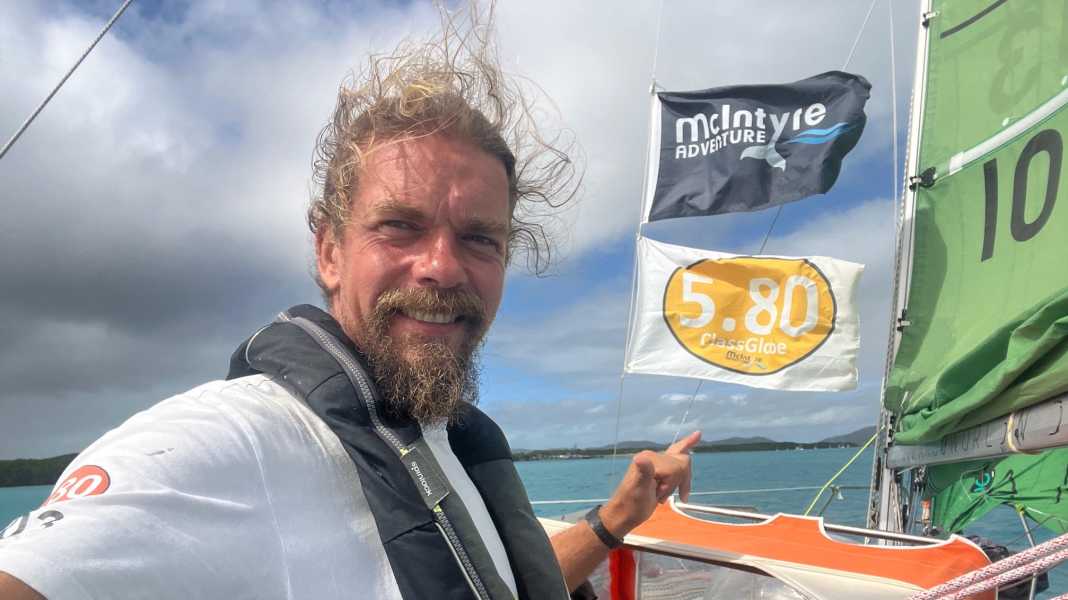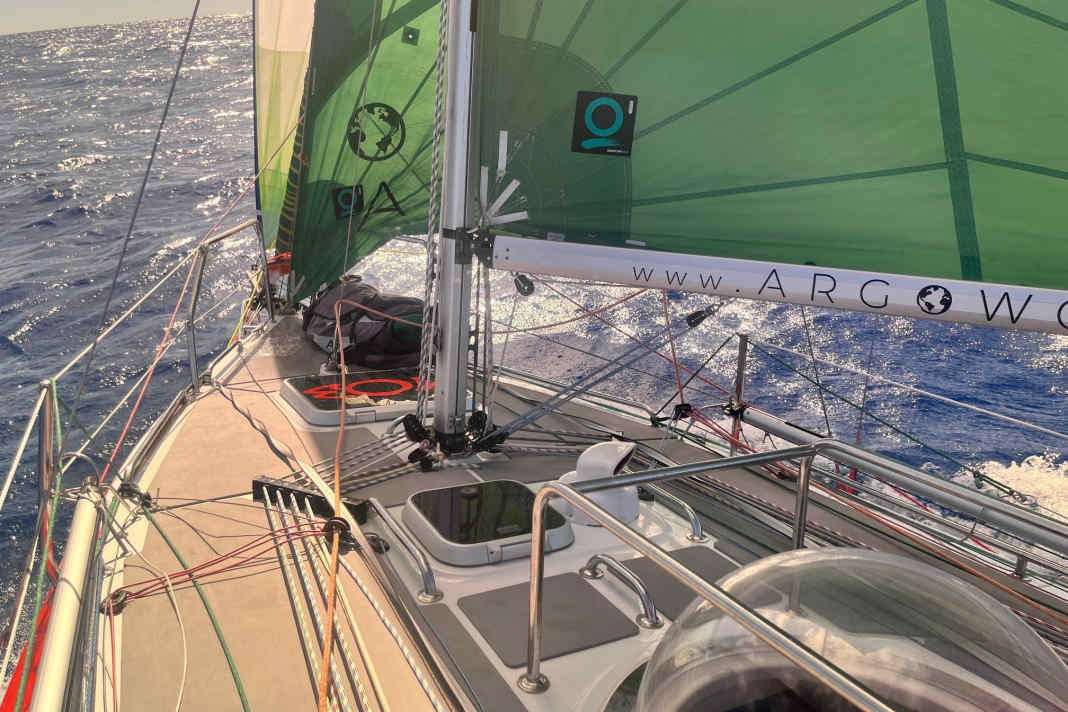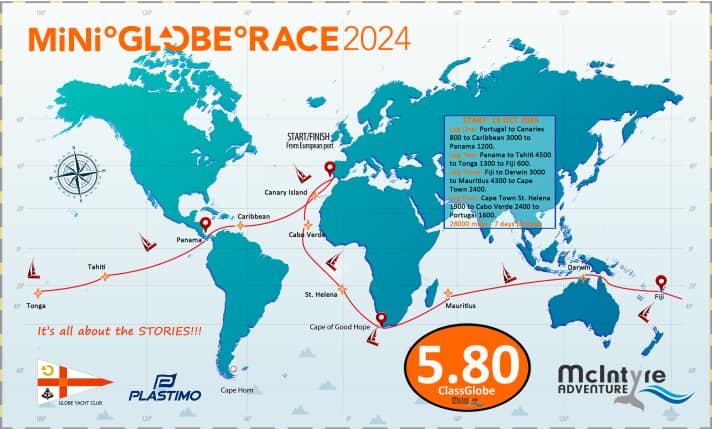
You made a five-day pit stop on the third leg from Fiji to Cape Town. Was that planned?
Yes, the pit stop was mandatory for all participants in the Mini Globe Race to stock up on water and food, as we don't have much space on board. The organiser, Don McIntyre, sets the duration of the stops based on our speed. Originally, five days were planned, but as we were faster than expected, he wanted to extend our stay. The stops allow us to control the time when we drive around the Cape of Good Hope - we don't necessarily want this to happen at the wrong time of year. However, we were able to convince him that we would rather spend more time elsewhere, as we couldn't get into the water with our dinghies because of the crocodiles.
It's understandable that you don't want to swim with the crocodiles. But why don't you dare take the dinghy out on the water?
We spoke to the harbour authority, who advised us not to do this, as crocodiles also attack inflatable boats. Nobody uses inflatable boats here, but they do use bite-proof boats made of aluminium, for example. There is also a strong current and a lot of wind, which makes travelling with a small paddle boat even more complicated. We were picked up by a water taxi if necessary.
How did you spend your time on or off Thursday Island, despite limited shore leave?
I have repaired two out of three damages to the sails, and the tiller pilot, which I have already repaired several times en route, has broken down again. I do have a replacement, but simply to have a backup again, I had ordered a new one. Fortunately, it arrived quickly from the Australian mainland to Thursday Island. I also serviced the wind steering system and carried out a few other checks. There's always something to do on a boat that makes so much distance.






You reported a rigging problem at the start of the leg ...
Yes, exactly. I had decided to replace all the shrouds and stays in Fiji just to be on the safe side. My manager had brought all the original Seldén parts with him. When tightening the tensioners by hand, a shroud came off the top, which was of course a stupid situation. After all, you have no idea whether the other parts might also have defects. The local rigger was able to re-press the damaged shroud, but we left the others on due to time constraints. I then set off with a queasy feeling. I haven't had any really bad weather yet, but I'm slowly gaining confidence that it will hold.
Then you hurt your head. How did that happen?
That was actually a silly story in calm conditions that wouldn't normally have required a helmet. I'm currently having some problems with the balance of the boat. This could be due to the new rig setup, as I trimmed the mast a little differently and also changed the weight distribution in the boat slightly. When I went to get my harness after sunset, the wind steering system suddenly went out of control and the boom jib hit me on the head. Fortunately not with full force, so I remained conscious. The wound was bleeding, but didn't need to be stapled. A turban was enough.
You already had serious problems with your shoulder. Will it hold out?
Quite well, so far. In Fiji I finally got a cortisone injection, which I had wanted on the Marquesas and in Tahiti but didn't get there. I protect my shoulder as much as I can, but I notice that it is strained when I make certain movements or change sails quickly. The sleeping position also plays a role, as I sleep in unusual positions due to my position. In addition, I now use a Heal Intense device for support. Overall, I am optimistic that the shoulder will hold out.
What was your highlight on the current leg of the Mini Globe Race?
Definitely the entrance to the Great Barrier Reef! Despite bad weather with lots of squalls and limited visibility, sailing through the reef was fascinating. In particular, the sudden changes in the current due to shoals and wind-against-current situations make for exciting and interesting sailing. The whole area is simply beautiful. Turquoise blue water - if only you could go into the water; it would be paradise.
What do you expect for the next stage to the Cocos Islands?
The stage is getting a bit longer again, and I'm excited. The islands are crazy far out in the north-west of Australia and are supposed to be fantastic. People I've met in Fiji have been raving about them. I'm definitely expecting more boat traffic and hope that the weather remains favourable and I don't get hit by a heavy storm.
To the Instagram account by Christian Sauer here.

More articles about the Mini Globe Race:
- Globe 5.80: Mini Globe Race starts off Antigua - German sailor on board
- Class Globe 5.80: Rough start to the Mini Globe Race
- Mini Globe Race: German participant in the lead on the second leg
- Mini Globe Race: Doldrums, bad luck and mishaps on the Pacific
- Mini Globe Race: Is the German participant facing a premature end?
- Mini Globe Race: Christian Sauer reaches Fiji

